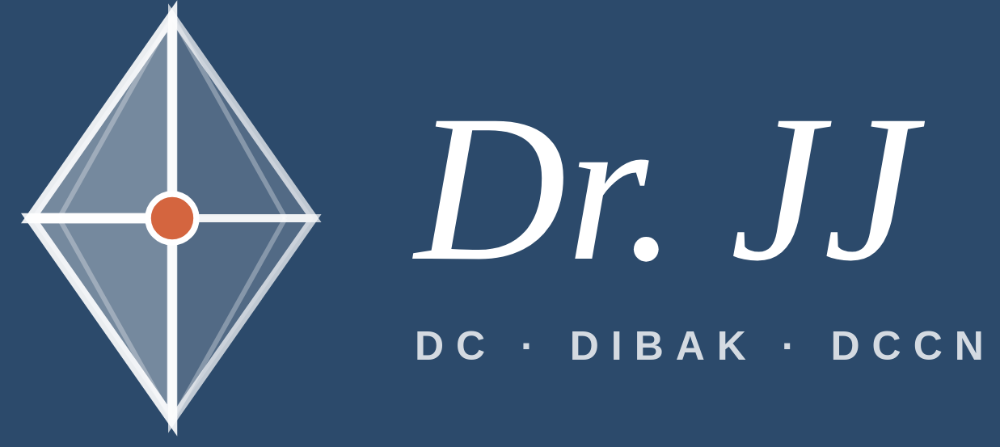10 Signs of TMJ Dysfunction

TMJ dysfunction creates symptoms throughout the body—not just jaw pain. Because the temporomandibular joint sends approximately 35% of all sensory input to your central nervous system and connects mechanically to the upper cervical spine, sphenoid bone, and hyoid complex, dysfunction here cascades into seemingly unrelated problems.
For a comprehensive explanation of how TMJ affects whole-body health, see: Can TMJ Cause Other Problems?
Here are the ten most common signs of TMJ dysfunction:
1. Headaches and Migraines
Headaches are the most common symptom of TMJ dysfunction. Tension headaches from overactive temporalis, masseter, and pterygoid muscles. Migraines triggered by trigeminal nerve irritation (the trigeminal nerve innervates the jaw and is the primary pain pathway for migraines). Cervicogenic headaches from upper cervical compensation.
Clinical example: Patient presented with 32 consecutive days of migraine-type headache. Multiple ER visits, two neurologists, MRI and CT scans—all negative. First treatment session: balanced TMJ via Applied Kinesiology muscle testing. Next day: first headache-free day in over a month.
Important caveat: If you experience sudden, severe, "thunderclap" headache—the worst headache of your life—go to the ER immediately. This could indicate subarachnoid hemorrhage or other life-threatening conditions.
Most headaches are multifactorial. TMJ dysfunction is rarely the only cause, but it's almost always a contributing factor when present.
2. Jaw Pain
Jaw pain is the most obvious TMJ symptom, but not all jaw pain originates from the TMJ. Cardiac ischemia (heart attack or angina) can present as jaw pain—especially left-sided jaw pain accompanied by chest pressure, shortness of breath, or arm pain.
Red flags requiring immediate evaluation:
- Jaw pain with chest discomfort
- Jaw pain with shortness of breath
- Jaw pain radiating down the left arm
- Jaw pain with sweating and nausea
If cardiac causes are ruled out, TMJ dysfunction is the likely culprit—particularly if pain worsens with chewing, jaw movement, or clenching.
3. Ear Pain
Ear pain without infection (otoscopic examination shows clear ear canal and intact tympanic membrane) frequently traces to TMJ dysfunction. The TMJ sits directly anterior to the ear canal. Muscular and ligamentous attachments of the jaw connect to structures near the ear.
When TMJ biomechanics are disrupted—particularly lateral pterygoid hypertonicity or disc displacement—referred pain patterns create the sensation of ear pain. Patients describe it as deep ear pressure, aching, or fullness.
Differential diagnosis: Rule out actual ear infection (ENT evaluation if uncertain). If ear exam is normal, TMJ is the likely source.
4. Tinnitus (Ringing in the Ears)
Tinnitus—persistent ringing, buzzing, or hissing in the ears—has multiple causes: noise exposure, hearing loss, Meniere's disease, acoustic neuroma. TMJ dysfunction is a frequently overlooked contributor.
Mechanism: The medial pterygoid muscle attaches near the Eustachian tube. When hypertonic, it can affect middle ear pressure regulation. TMJ disc displacement can irritate the auriculotemporal nerve. Altered jaw mechanics create abnormal pressure on structures surrounding the ear.
Clinical pattern: Tinnitus that worsens with jaw clenching, improves with jaw relaxation, or correlates with TMJ clicking suggests TMJ involvement.
Additional factor: Ileocecal valve dysfunction (the valve between small and large intestine) also correlates with tinnitus through mechanisms that aren't fully understood but are clinically reproducible. Addressing both TMJ and ileocecal valve dysfunction often resolves tinnitus that doesn't respond to conventional treatment.
5. Bruxism (Teeth Grinding)
Bruxism—grinding or clenching teeth, usually during sleep—damages teeth through enamel wear, cracking, and fractures. It also perpetuates TMJ dysfunction by maintaining chronic muscle hypertonicity.
Causes of bruxism:
- Occlusal interference: Teeth don't fit together properly (malocclusion). The jaw seeks proper alignment through grinding, attempting to "wear down" the interference.
- Proprioceptive dysfunction: The periodontal ligament (surrounds tooth roots) contains mechanoreceptors that should signal jaw-closing muscles to relax when teeth make contact. If this reflex is impaired, muscles don't turn off properly.
- Stress and sympathetic dominance: Chronic stress maintains muscle tension, including jaw muscles. Sleep bruxism often worsens during high-stress periods.
- Nutritional factors: Magnesium deficiency (magnesium relaxes muscles), calcium imbalance, or B-vitamin deficiencies can contribute to muscle hypertonicity.
Night guards protect teeth from damage but don't address why you're grinding. Correcting TMJ biomechanics, managing stress, and addressing nutritional deficiencies resolve the underlying pattern.
For stress management strategies, see: Regulate Your System: Lifestyle Primer.
6. Neck and Spine Pain
TMJ dysfunction creates compensation patterns throughout the spine. The jaw connects to the cranium via the temporal bone. The temporal bone articulates with the occipital bone (base of the skull). The occipital bone articulates with the atlas (C1 vertebra).
When TMJ mechanics are disrupted, the atlas compensates. Atlas misalignment affects the rest of the cervical spine. Cervical dysfunction affects thoracic spine. The pattern cascades downward.
Clinical observation: Upper neck pain, occipital headaches, and even sciatic-like pain in the pelvis often improve when TMJ dysfunction is corrected. This isn't mystical—it's biomechanical compensation.
Remember: 35% of sensory input to your central nervous system comes from the TMJ and surrounding structures (Penfield and Rasmussen's cortical homunculus mapping). When this massive sensory input is distorted by dysfunction, motor output throughout the body becomes distorted in response.
7. Jaw Clicking or Popping
An audible click when opening or closing the jaw indicates disc displacement—the articular disc between the condyle (jaw bone) and temporal bone (skull) isn't tracking properly.
Mechanism: The superior head of the lateral pterygoid muscle attaches to the anterior portion of the TMJ disc. When this muscle becomes hypertonic (chronically tight), it pulls the disc forward (anterior displacement). As you open your jaw, the condyle has to "pop" over the displaced disc to achieve full opening. You hear and feel a click.
Opening click: Disc is displaced when jaw is closed, pops into place during opening.
Closing click: Disc is in proper position when jaw is open, displaces during closing.
Reciprocal click: Click on opening and closing—disc moves in and out of position with jaw movement.
Not all clicking requires treatment. If clicking is painless and doesn't limit jaw function, it may not be problematic. If clicking is accompanied by pain, limited opening, or locking, intervention is warranted.
8. Endocrine and Hormonal Imbalances
The pituitary gland—your endocrine system's master regulator—sits inside the sphenoid bone in a small cavity called the sella turcica. The temporalis, masseter, and pterygoid muscles all attach to the sphenoid bone.
When TMJ muscles are chronically imbalanced—some hypertonic, others inhibited—they create abnormal mechanical stress on the sphenoid. This can affect pituitary function, not through direct compression, but through altered cerebrospinal fluid dynamics and mechanical tension affecting the bone's movement (the sphenoid flexes and extends with cranial rhythm).
Clinical correlation: Patients with TMJ dysfunction and hormonal imbalances (thyroid dysfunction, irregular menstrual cycles, cortisol dysregulation, blood sugar instability) sometimes see hormonal patterns normalize when TMJ mechanics improve.
This doesn't mean TMJ causes all endocrine problems. It means TMJ dysfunction can be one contributing factor in complex hormonal cases.
9. Chronic Sore Throat or Difficulty Swallowing
Persistent sore throat or throat tightness without infection often traces to hyoid complex dysfunction. The hyoid bone—a U-shaped bone in the neck that anchors tongue muscles—is mechanically connected to the TMJ through the suprahyoid and infrahyoid muscle chains.
When TMJ mechanics are disrupted, compensatory tension develops in the hyoid muscles (digastric, stylohyoid, mylohyoid, geniohyoid). This creates the sensation of throat tightness, difficulty swallowing, or persistent throat clearing.
Globe sensation (feeling of a lump in the throat) without structural pathology often improves when hyoid and TMJ mechanics are corrected.
10. Limited Jaw Opening (Trismus)
Normal jaw opening: You should be able to fit the width of three knuckles (stacked vertically) between your upper and lower front teeth when your mouth is fully open. This is approximately 40-50mm of interincisal distance.
If you can't achieve this, you have restricted jaw opening—usually from hypertonic jaw-closing muscles (masseter, temporalis, medial pterygoid) that won't relax properly.
Causes of limited opening:
- Chronic muscle hypertonicity (muscles stay contracted)
- Disc displacement without reduction (disc blocks condyle translation)
- Capsular fibrosis (joint capsule becomes stiff from chronic inflammation)
- Arthritis or degenerative joint disease
Limited opening that develops suddenly (acute trismus) can indicate locked jaw—the disc is displaced and blocking movement. This requires immediate evaluation.
Self-Assessment: Do You Have TMJ Dysfunction?
If you experience three or more of these signs, TMJ dysfunction is likely contributing to your symptoms:
- Frequent headaches or migraines
- Jaw pain or tenderness
- Ear pain without infection
- Tinnitus (ringing in ears)
- Teeth grinding or clenching (especially during sleep)
- Neck or upper back pain
- Clicking, popping, or grating sounds in jaw
- Unexplained hormonal imbalances
- Chronic sore throat without infection
- Limited jaw opening (can't fit three knuckles between teeth)
How Applied Kinesiology Addresses TMJ Dysfunction
Applied Kinesiology muscle testing evaluates which specific muscles controlling the TMJ are inhibited (weak) and which are facilitated (overactive). We test:
- Masseter, temporalis, and pterygoid muscle balance
- Suprahyoid and infrahyoid muscle function
- Upper cervical spine mechanics (particularly atlas/C1)
- Nutritional factors affecting muscle function (magnesium, B vitamins, inflammation)
- Stress patterns maintaining muscle hypertonicity
Chiropractic adjustments to the TMJ, atlas, and cervical spine restore proper mechanics. Nutritional support addresses biochemical factors. Stress management reduces sympathetic dominance maintaining muscle tension.
For movement and postural strategies, see: Move With Purpose: Movement Primer.
TMJ Evaluation in Frisco, Texas
If you're experiencing multiple TMJ dysfunction symptoms and conventional approaches (night guards, pain medication) aren't addressing the root cause, Applied Kinesiology evaluation identifies the specific muscular imbalances, structural dysfunctions, and biochemical factors driving your TMJ pattern.
Call or text: (972) 989-4683
Book an appointment online →
Stay connected with news and updates!
Join our mailing list to receive the latest news and updates from our team.
Don't worry, your information will not be shared.

